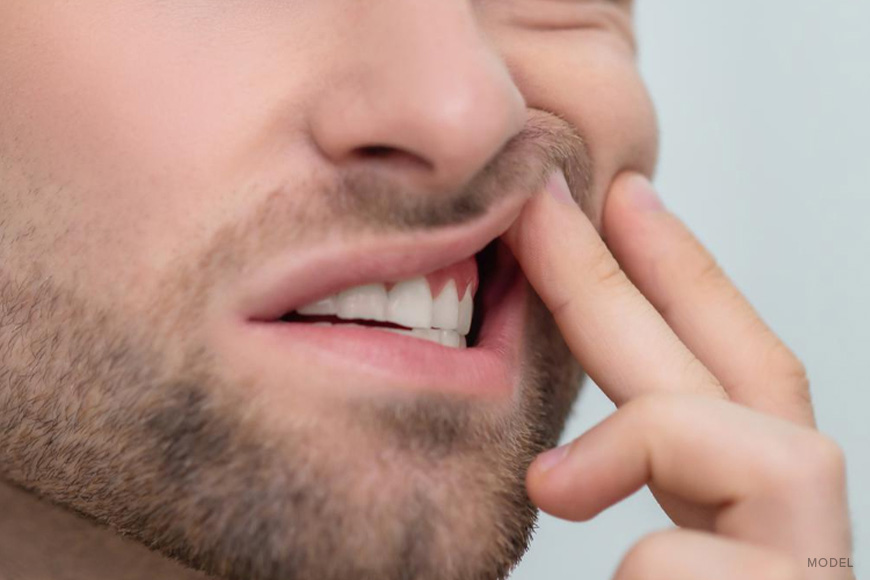Itchy gums can be an uncomfortable issue, many experience this at some point in their lives. While it may not always be a cause for concern, it’s essential to understand the potential causes and how to address this discomfort. In this article, we will delve into the various factors that can lead to itchy gums and provide practical tips on how to relieve the itch.
What Causes Itchy Gums?
Itchy gums can be triggered by several factors, including:
- Poor Oral Hygiene
One of the most common causes of itchy gums is inadequate oral hygiene. When you don’t brush and floss your teeth regularly, plaque and bacteria can build up along the gumline, leading to gum irritation and itching. - Allergies
Allergies to certain foods or substances can manifest as itchy gums. If you notice that your gums become itchy after consuming specific foods or coming into contact with allergens, it’s crucial to identify and avoid these triggers. - Dental Issues
Dental problems like cavities, gum disease, or a misaligned bite can contribute to gum discomfort. Itchy gums may be a sign of an underlying dental issue that requires professional attention. - Hormonal Changes
In some cases, hormonal changes, such as those occurring during pregnancy or menstruation, can lead to gum sensitivity and itching. - Medications
Certain medications can have side effects that affect oral health. If you suspect that your medication is causing itchy gums, consult your healthcare provider for alternative options.
Identifying Itchy Gum Discomfort
To address itchy gums effectively, it’s essential to identify the specific discomfort you’re experiencing. Common symptoms include:
- Persistent itching
- Redness or swelling
- Bleeding gums
- Bad breath
- Soreness
If you notice any of these symptoms, it’s time to take action.
How to Relieve Itchy Gums
If you have identified any of the symptoms above, try these practical steps you can take to relieve itchy gums:
- Maintain Good Oral Hygiene.
The foundation of healthy gums is proper oral hygiene. Brush your teeth at least twice a day, floss regularly, and use an antimicrobial mouthwash to keep bacteria at bay. - Use a Gentle Toothbrush.
Opt for a soft-bristle toothbrush to prevent further irritation to your gums. Brush gently in circular motions, and don’t forget to clean your tongue as well. - Avoid Allergens.
If you suspect that allergies are causing your itchy gums, try to identify and eliminate the triggers from your diet or environment. - Visit Your Dentist.
If the itching persists or is accompanied by other concerning symptoms, make an appointment with your dentist. They can assess your oral health and recommend appropriate treatments.
Madison Dentistry & Implant Center: Your Partner in Gum Health
At Madison Dentistry & Implant Center, we understand the importance of gum health. With proper care and attention from our experienced team of professionals, you can alleviate the symptoms of your concern and keep your oral health at its best.
Remember to practice excellent oral hygiene, be mindful of potential allergens, and seek professional dental care when needed. Schedule your appointment now for personalized and effective dental solutions.
FAQs
- Can it be a sign of a more severe dental problem? Yes, persistent itchy gums can indicate underlying dental issues like gum disease or cavities. It’s essential to consult your dentist for a proper evaluation.
- How can I prevent it? To prevent itchy gums, maintain good oral hygiene, avoid known allergens, and schedule regular dental check-ups.
- Are there home remedies for relieving it? Rinsing your mouth with saltwater or using an over-the-counter oral gel can help alleviate mild gum itching. However, if the problem persists, consult a dentist.
- Can hormonal changes really affect gum health? Yes, hormonal changes, such as those during pregnancy or menstruation, can lead to gum sensitivity and itching in some individuals.
- How often should I visit the dentist for check-ups? It’s generally recommended to visit the dentist for a check-up and cleaning every six months to maintain optimal oral health.




